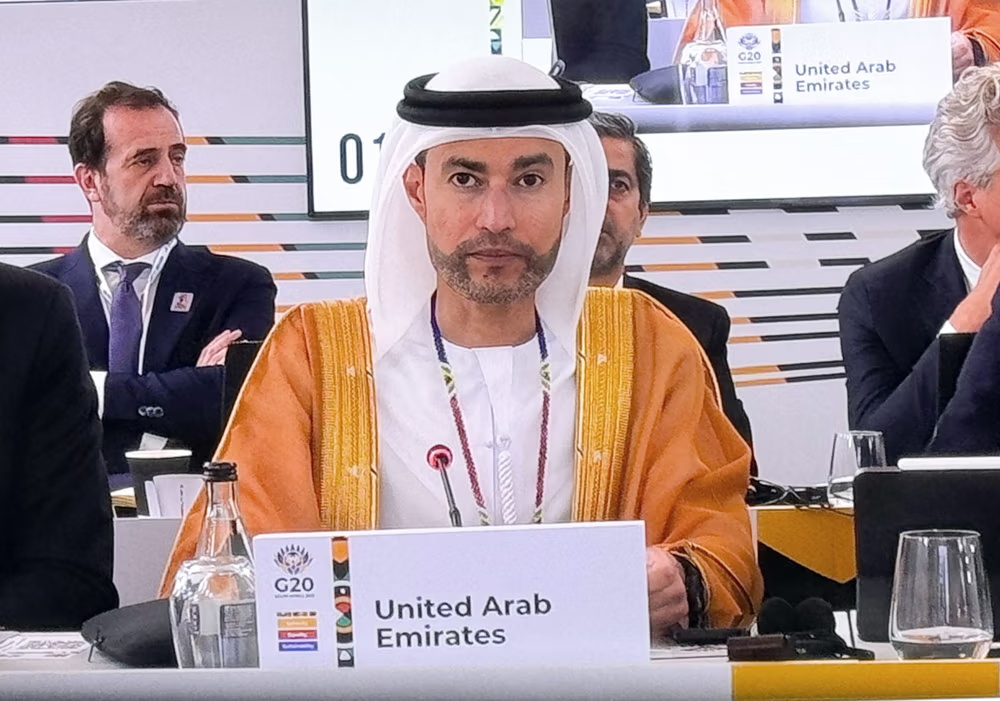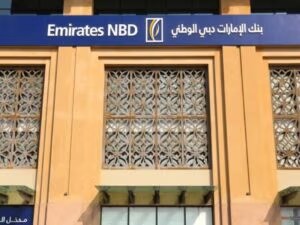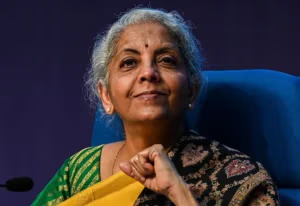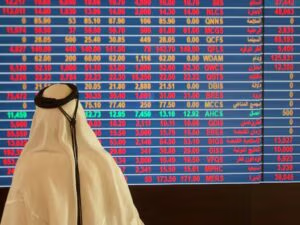The United Arab Emirates has reaffirmed its commitment to global financial cooperation through active participation in the 3rd G20 Finance Ministers and Central Bank Governors (FMCBG) meeting, hosted under South Africa’s G20 Presidency for 2025.
Represented by the Ministry of Finance and the Central Bank of the UAE, the delegation was led by Mohamed bin Hadi Al Hussaini, Minister of State for Financial Affairs. The UAE team also included senior officials, Younis Haji AlKhoori, Ebrahim Obaid Al Zaabi, and Ali Abdullah Sharafi.
Held in Durban, the high-level meeting brought together finance ministers and central bank governors from G20 member states, invited countries, and global institutions to review economic progress and shape policy responses to key global challenges.
UAE Aligns with G20 Priorities
Al Hussaini highlighted that UAE G20 Participation 2025 aims to contribute constructively to international financial reforms, economic development, and fiscal stability. “This platform provides an opportunity to collaborate on policies that address macroeconomic risks and promote sustainable development,” he said.
The minister emphasized the need for targeted fiscal support, improved labour market efficiency, and enhanced institutional quality to ensure long-term macroeconomic stability.
Driving Support for Developing Economies
Echoing the G20’s developmental objectives, Al Hussaini stressed the UAE’s support for emerging markets and developing economies (EMDEs). “Through reduced investment risks, mobilised private capital, and strengthened local markets, we can enhance financial resilience globally,” he noted.
The UAE also underscored its commitment to international tax cooperation, welcoming progress under the OECD’s BEPS framework and highlighting its participation in the UN Framework Convention on International Tax Cooperation.
Africa-Focused Financial Inclusion
One of the key focuses of the Durban meeting was addressing impediments to growth in Africa. Al Hussaini called for deeper private sector participation in infrastructure and easier access to affordable capital, describing these as catalysts for inclusive growth across the continent.
He further emphasized the importance of enhancing institutional capacity and improving climate data accessibility, citing the UAE’s experience in closing insurance protection gaps through the use of climate risk assessments and collaborative frameworks.
On the Sidelines: UAE Engages in Strategic Dialogues
Ahead of the main FMCBG meeting, UAE representatives also participated in the G20 Finance and Central Bank Deputies’ meetings from July 14 to 16. These sessions covered international tax frameworks, development financing, pandemic recovery mechanisms, and the evolving role of multilateral development banks.
The Durban communiqué, adopted at the conclusion of the meetings, incorporated the UAE’s contributions and policy positions, articulated through working group discussions and deputy-level drafting sessions.
Continued G20 Engagement
This marks the UAE’s sixth participation in the G20 Summit process, following invitations from France (2011), Saudi Arabia (2020), Indonesia (2022), India (2023), and Brazil (2024). The country’s involvement will continue through the 2025 cycle and culminate in the G20 Leaders’ Summit later this year.
–Input WAM





